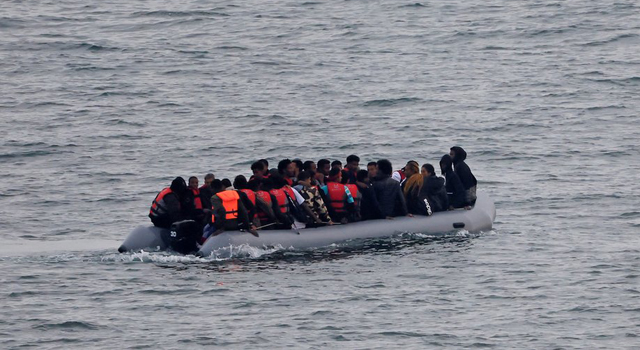
LONDON, March 5, 2024 (BSS/AFP) - A grouping of northern European countries on Monday agreed to work on a new "customs partnership" to disrupt the supply of small boats used to carry migrants cross the Channel, Britain's interior ministry said.
The UK and France will lead on setting up the new initiative, which will see countries' customs agencies share information on the shipping of small boat materials more effectively, it added.
It comes as Britain, no longer an EU member since 2020, tries to stem the flow of tens of thousands of migrants arriving each year on its southeastern shores on small boats from mainland Europe.
The journeys have repeatedly proved deadly, with the latest victim a seven-year-old girl who drowned on Sunday when a small boat carrying 16 migrants heading from northern France to Britain capsized.
UK Prime Minister Rishi Sunak vowed at the start of last year to "stop the boats" but nearly 30,000 still made the crossing in 2023 despite stepped up efforts to thwart them.
The issue -- a politically potent one given the UK government's promise to "take back control" of the country's borders after Brexit -- is set to feature prominently in a general election later this year.
The plan for better customs coordination was discussed at a ministerial meeting Monday of the so-called Calais Group in Brussels.
It comprises the UK, France, Belgium, Germany and the Netherlands, as well as the European Commission and its agencies, and works to promote cooperation on tackling irregular migration.
"This is an initiative to work with countries throughout the supply chain of small boat materials, and will build on the effective work already being done to prevent small boat launches from northern France," the UK interior ministry said in a statement.
"Partnership countries and their customs agencies will... be able to share information more effectively to disrupt shipments of small boat materials, preventing them from making it to the English Channel."
The grouping is set to discuss the plan again at its next meeting in April.
Monday's gathering also explored working with social media companies to tackle online activity by people-smuggling networks, the UK ministry said.
In addition, participants discussed a recent UK deal with Frontex, the European border and coastguard agency, to exchange information and intelligence and take on the gangs together, it added.